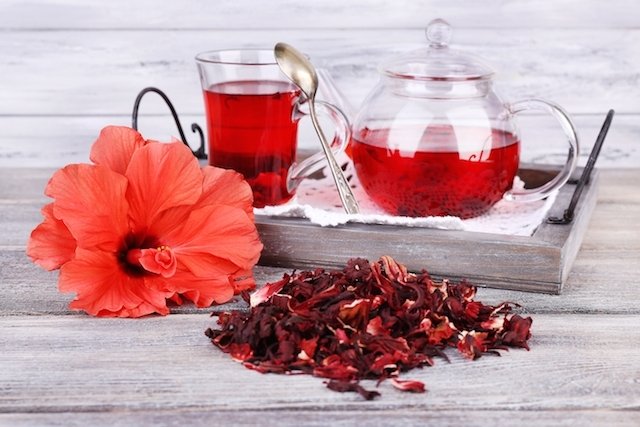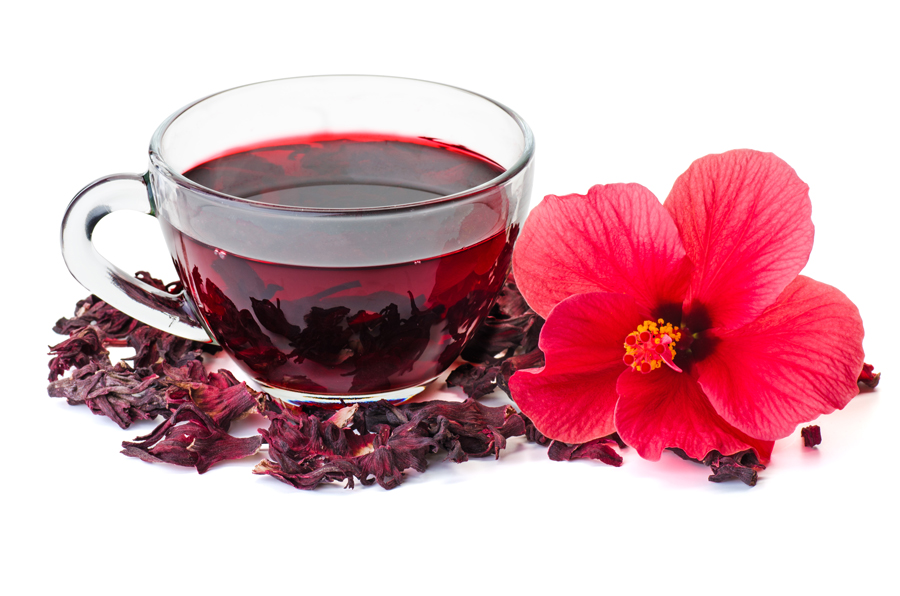Check your Blood Pressure
Fill the values below
Hibiscus Tea
 Hibiscus tea, derived from the Hibiscus sabdariffa plant, has garnered significant attention for its potential to lower blood pressure, offering a natural alternative or complement to conventional hypertension treatments. This herbal tea, known for its tart flavor and vibrant red color, is rich in antioxidants, particularly anthocyanins, which contribute to its health benefits. Numerous studies have explored its efficacy in managing blood pressure, with promising results indicating that regular consumption can lead to notable reductions in both systolic and diastolic blood pressure levels.
Hibiscus tea, derived from the Hibiscus sabdariffa plant, has garnered significant attention for its potential to lower blood pressure, offering a natural alternative or complement to conventional hypertension treatments. This herbal tea, known for its tart flavor and vibrant red color, is rich in antioxidants, particularly anthocyanins, which contribute to its health benefits. Numerous studies have explored its efficacy in managing blood pressure, with promising results indicating that regular consumption can lead to notable reductions in both systolic and diastolic blood pressure levels.
The primary mechanism through which hibiscus tea influences blood pressure involves its diuretic properties and its ability to relax blood vessels. Diuretics help the body eliminate excess sodium and water, thereby reducing blood volume and, consequently, blood pressure. Additionally, the tea's bioactive compounds, such as flavonoids and phenolic acids, enhance nitric oxide production, which helps to dilate blood vessels, improving blood flow and reducing vascular resistance. This combination of effects makes hibiscus tea a potent natural remedy for hypertension.
 Clinical studies have provided substantial evidence supporting the antihypertensive effects of hibiscus tea. For instance, a study published in the Journal of Nutrition found that participants who consumed hibiscus tea daily experienced a significant reduction in systolic blood pressure compared to those who drank a placebo beverage. Another study published in Phytomedicine demonstrated that hibiscus tea was as effective in lowering blood pressure as some standard antihypertensive medications. These findings highlight the potential of hibiscus tea as a valuable tool in the management of high blood pressure, particularly for individuals seeking natural treatment options.
Clinical studies have provided substantial evidence supporting the antihypertensive effects of hibiscus tea. For instance, a study published in the Journal of Nutrition found that participants who consumed hibiscus tea daily experienced a significant reduction in systolic blood pressure compared to those who drank a placebo beverage. Another study published in Phytomedicine demonstrated that hibiscus tea was as effective in lowering blood pressure as some standard antihypertensive medications. These findings highlight the potential of hibiscus tea as a valuable tool in the management of high blood pressure, particularly for individuals seeking natural treatment options.
In addition to its blood pressure-lowering effects, hibiscus tea offers other cardiovascular benefits. Its high antioxidant content helps combat oxidative stress, a key factor in the development of heart disease. By reducing oxidative damage to cells and tissues, hibiscus tea supports overall heart health and reduces the risk of complications associated with hypertension, such as stroke and heart attack. Furthermore, its anti-inflammatory properties can help mitigate chronic inflammation, another contributor to cardiovascular disease.
Despite the promising benefits, it's important to approach hibiscus tea as a complementary therapy rather than a sole treatment for hypertension. Individuals with high blood pressure should consult with their healthcare provider before incorporating hibiscus tea into their regimen, especially if they are taking medications or have underlying health conditions. While generally considered safe, hibiscus tea can interact with certain drugs, such as antihypertensives and diuretics, potentially enhancing their effects and leading to low blood pressure. Moderation and medical guidance are key to safely reaping the benefits of this natural remedy.
More Information For You
- Blood PressureHow to Increase Blood Pressure: Strategies and Considerations
- Blood PressureWhat is Blood Pressure and How is it Measured?
- Blood PressureRisk Factors for Blood Pressure
- ClassificationThird Degree Hypertension
- ClassificationSecond Degree Hypertension
